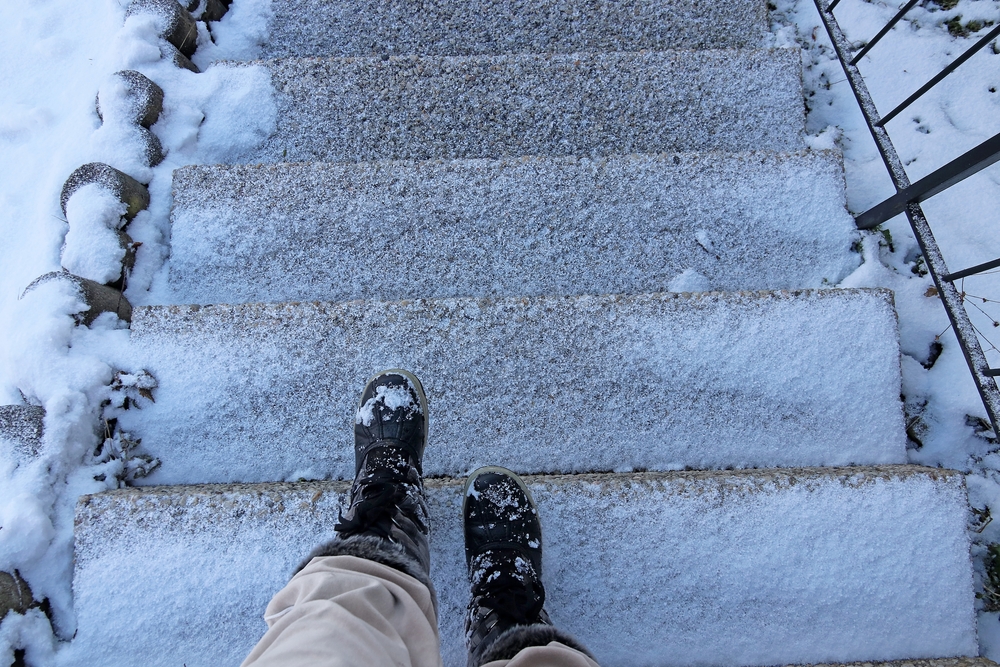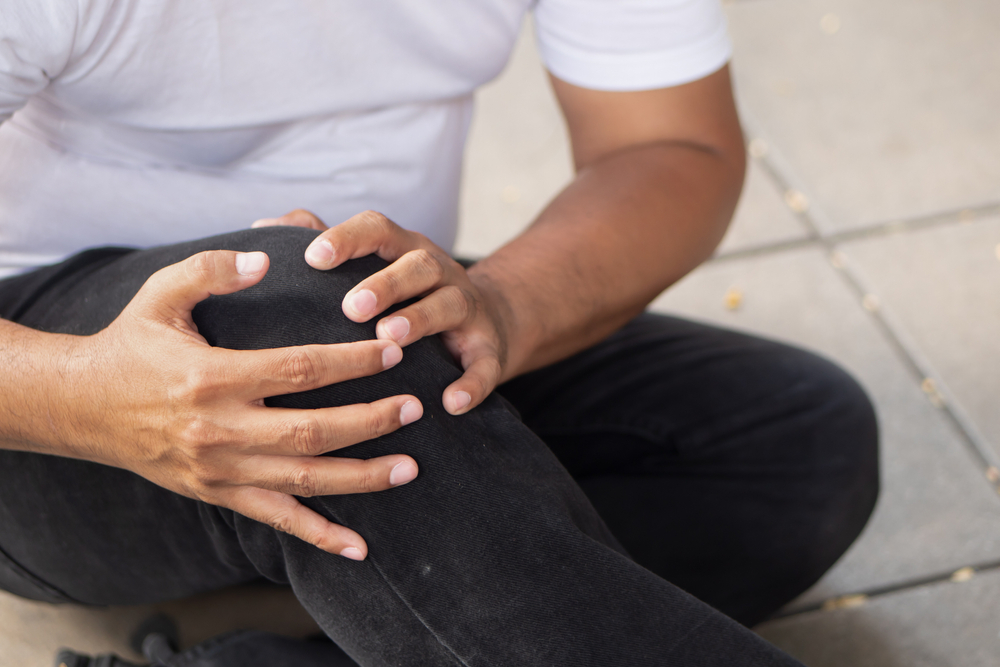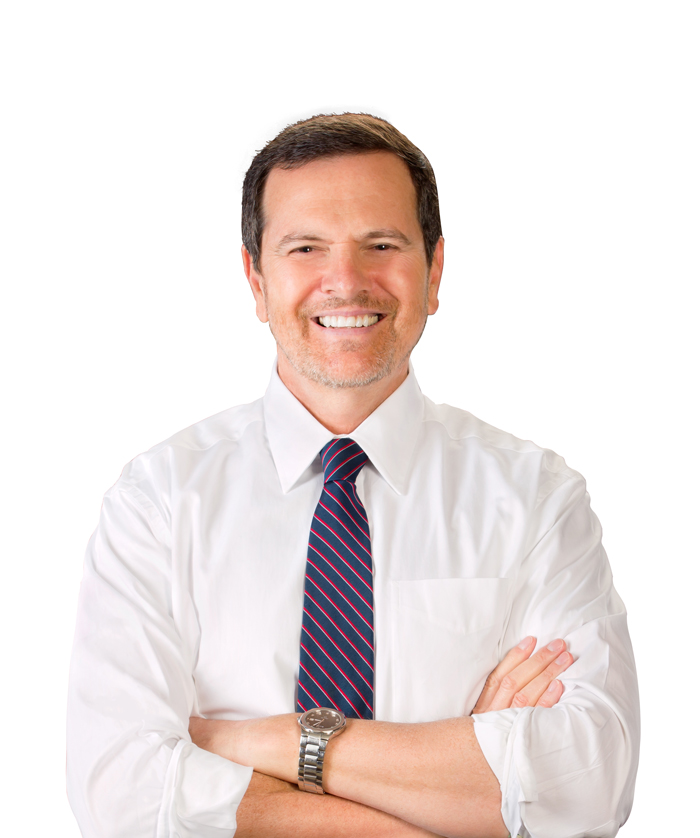Lake City, Florida, is in Columbia County with a population of just over 12,300. It’s known as “The Gateway to Florida” since Interstate 75 runs through them. I-75 sees a lot of traffic accidents due to both tourist and commercial traffic, not to mention the increasing population in these areas and all over Florida. However, Lake City also has its fair share of slip and fall accidents.
Those injured in slip and fall incidents deserve compensation to pay for their damages. The best way to pursue such compensation is to seek the representation of a skilled Lake City slip and fall attorney from Bagen Law Accident Injury Lawyers, P.A..
We have obtained millions of dollars for injured clients, and we can advise whether you have a strong claim.
Florida Premise Liability Laws
Slip and fall accidents can potentially happen nearly anywhere around the city, including:
- The V.A. Medical Center
- The Health Care Center of Lake City
- Columbia County Schools
- Florida Gateway College
- Regal UA Cinema 90
- Publix Supermarkets
- Winn-Dixie
- S&S Food Stores
- The Lake City Gateway Airport
Slip and fall incidents fall under Florida’s premise liability laws. In some situations, these laws make property owners liable for injuries to others on their property. However, it depends on why the injured person was on the property and how they were injured.
Generally, property owners or tenants (such as a shop owner renting a space) must keep the property reasonably free of any hazardous conditions or dangers.
Those who enter the property are classified as:
Invitees
The invitee is on the property for business purposes. For example, invitees might include a shopper, a visitor in a public place, or even social guests.

The property must always be in a safe condition. If danger is present, the owner must warn the invitee. To assess the property’s condition, the owner must inspect it regularly. For instance, a grocery store owner or their employees or agents on their behalf must routinely check aisles for foreign substances on the floor to prevent anyone from slipping and falling. If they find something on the floor, they must clean it up right away or place a sign to warn others about it.
Licensee
A licensee is on the property because it directly benefits them. If, for example, suppose someone comes into a store to get change with no intention of shopping. Their actions only benefit themselves and not anyone else or the property owner.
While they are in the shop, they slip and fall on a wet floor. In that case, the property owner still must post warning signs, or a licensee can hold them liable for their injuries.
Trespassers
Finally, trespassers enter the property without express permission from the property owner or their agent. No matter why they are there, they still deserve reasonable protections under Florida law. For instance, an unmarked open hazard can create a liability for the property owner.
The property owner still has certain legal responsibilities regardless of the status of the individual entering the property.
Some of their duties include:
- Proper notice, such as a warning sign, of any hazardous conditions of which the property owner may be aware
- Maintaining the property in a reasonably safe condition
- Adequate posting of “no trespassing” signs or warning of harmful or dangerous conditions regarding the property
- Not permitting a dangerous or harmful condition to fester on the property, whether unintentionally or intentionally
Common Slip and Fall Injuries
Slip and falls can happen if a walking surface is too slippery. A lack of friction between the foot or shoe and the walking surface can cause someone to slip or slide on the walking surface. If they don’t quickly regain their balance or otherwise steady themselves, such as by grabbing a railing or another stationary object, they will fall.
Slip and fall injuries vary in type and severity depending on the victim’s physical condition, what caused them to fall, body mechanics, the angle of the fall, and the surface they landed on. Some injured parties only sustain minor injuries and will only experience soreness and bruising.
However, others might break an ankle, have whiplash, or injure their neck or back. You deserve compensation for whatever injuries you sustained in a slip and fall accident.
Head Injuries
Even though fall victims frequently catch themselves with their arms, falls can result in head injuries.
A head injury might occur if you:

- Fall on your back
- Fall forward and can’t use your arms to brace your fall
- Hit your head on something as you fall, such as shelving at the store
Some head injuries are quite severe and can lead to permanent disability or even death. Head injury severity affects the symptoms an injured individual will have, their recovery, and the medical care required for them to normal function or as close as possible.
Traumatic Brain Injuries
Head injuries are often called traumatic brain injuries (TBI). Falls are the primary cause of TBIs, accounting for nearly 50 percent of reported brain injuries. A TBI is one of the most disabling injuries, almost always causing permanent emotional, behavioral, and physical impairment. Almost half of individuals patients hospitalized with a TBI will have long-term or permanent disabilities.
Closed Head Injury
Head injuries are either open or closed. If the skull is intact, it’s a closed head injury. Even still, those with closed head injuries are at risk for brain damage and other permanent effects. If someone hits their head on the ground or another hard surface when they fall can sustain a closed head injury.
Closed head injuries include:
- Bruised brain tissue
- Torn blood vessels of the brain
- Swelling and pressure inside the skull
Concussion
Concussions can also result from slip and fall accidents.
Concussion symptoms include:
- Headaches
- Dizziness
- Ringing in the ears
- Slurred speech
- Appearing dazed
- Loss of consciousness
Some serious concussions can lead to permanent changes in the brain, including changes that cause recurrent lifelong seizures.
Brain changes can also affect a person’s:
- Concentration
- Memory
- Sleep patterns
- Behavior
- Personality
Neck, Back, and Hip Injuries
The neck, back, and hip are especially at risk of slip and fall injuries. These areas protect internal organs. However, depending on how a fall victim lands, several types of injuries can occur.
Neck and back injuries may involve soft tissues and other tissues like bones and the spinal cord. Most neck injuries involve only soft tissue such as ligaments, tendons, and muscles.
Whiplash
The quick and extreme force of a slip and fall can result in whiplash injuries. Whiplash often damages the neck muscles, ligaments, discs, joints, and nerve roots. It’s worth noting that those who sustain whiplash might not experience any pain or symptoms until a few days later.
Symptoms include:
- Weakness
- Numbness
- Tingling
- Dizziness
- Stiffness
- Difficulty sleeping
- Generalized pain
Whiplash injuries can take several weeks or more to heal.
Back, Neck, and Hip Sprains and Muscle Strains
The ligaments, strips of connective tissue that help hold bones together, and muscles can sustain severe damage in a fall. Moderate to severe sprains and strains need emergency medical care.
Sprain and strain symptoms are:
- Pain
- Stiffness
- Swelling
- Weakness
- Decreased flexibility
Herniated Discs

Herniations occur when the soft substance inside the discs between the vertebra moves outward. Herniated discs often happen from torque on a joint during a fall. They can occur anywhere along the neck or back.
Herniated discs can cause pain, tingling, weakness, and numbness. Sometimes disc herniations require surgery.
Neck Fractures
Severe falls can cause the neck (cervical) bones to break. The extent and type of neck fracture depend on the angle of the force upon impact. Treatment often includes surgery, prescription pain medications, and stabilizing the neck. A neck dislocation frequently occurs with a fracture.
Cervical Dislocation
Bones in the neck can move out of their natural position, especially with torn ligaments. Dislocations can cause spine instability. All cervical dislocations have the potential to damage the spinal cord, which typically necessitates surgery. On the other hand, minor dislocations might return to normal on their own after some time and a collar or neck brace.
Spinal Cord Injury (SCI)
Over 30 percent of all spinal cord injury cases in the United States are due to falls. SCIs can occur in the back or neck. An injury to the neck, such as a break or dislocation, is typically the cause of a cervical spinal cord injury.
An injury at or above the third cervical vertebra is usually fatal. Survivors of SCIs usually need a permanent respirator and live with a disability for the rest of their lives.
Paralysis below the area of injury is common. Emergency care is critical to an injury victim’s survival and future quality of life. Treatment involves surgery and supportive care specific to the level of the injury and symptoms.
Tailbone Injuries
Falling backward can cause the tailbone to bruise or even break. Ligament damage and extreme soreness are typical of tailbone injuries. Unfortunately, some people can’t sit as usual after a tailbone injury. These injuries can take some time to heal but don’t usually require surgery.
Hip Fractures
Hip fractures often occur with dislocations. The femur can fracture partially or entirely due to the force of the fall. The treatment for most hip fractures is surgery, and some will require metal plates and screws to hold the bones together as they heal. Recovering from a hip fracture and surgery can take months, requiring physical therapy and rehabilitation. Some aging victims will never recover.
Shoulder, Arm, Leg Injuries
A slip and fall accident can also result in severe injuries to the arms, shoulders, and legs. It’s instinctive to attempt to catch ourselves with our arms extended, whether falling backward or forwards. This protective motion often prevents injuries to other parts of the body, such as the back and head, and it can also cause other injuries.
Rotator Cuff Tear
A rotator cuff is the four muscles of the upper arm, and tendons attach them to your bones. If those tendons tear, moving your arm can be painful and difficult. People who fall straight down or land on their sides are more likely to sustain a hip fracture or shoulder injury.
Symptoms include:
- Tenderness and soreness when using the arm
- An inability to raise the arm
- Problems sleeping when lying on the affected side
- Pain associated with pressure
Like most other injuries, treatment depends on how severe the tear is and might include surgery. Once the shoulder heals, physical therapy can help increase shoulder movement.
Broken Bones
Fractures or broken bones are among the most frequent injuries seen in slip and fall incidents. Reaching for something while falling or using hands to break a fall increases the risk of a broken arm, wrist, or hand. Falls can also cause broken ankle, leg, and foot bones.
Some breaks are relatively minor and may only need a few weeks of immobility in a cast to heal. Yet, other breaks are more complicated. For example, they may need months of physical therapy, surgical intervention, and narcotic pain medications. Sometimes severely broken bones can lead to loss of function, sensation, and deformity.
Knee Injuries
Several bones and ligaments meet at the knee. If you twist as you fall, you’re more likely to sustain a knee injury.
Injured ligaments can result in serious pain, swelling in the area, or the knee buckling or giving way while the person is walking. The ligaments in the knee often take a long time to heal, and treatment frequently involves surgery.
Other knee injuries might include:
- Meniscus injuries
- Dislocated kneecaps
- Tendon injuries
- Hyperextended knees
Discuss all of your injuries with your Lake City slip and fall lawyer. They need to know about your medical expenses and your hardships so that you can receive full and fair compensation for your injuries.
Get Help After Suffering Slip and Fall Injuries by Calling a Seasoned Lake City Slip and Fall Attorney Today

If you need an experienced Lake City slip and fall lawyer, look no further than those at Bagen Law Accident Injury Lawyers, P.A.. Our firm has recovered 100s of millions of dollars over more than three decades for our injured clients.
We understand what it’s like when the negligence of another person or party injures someone and the worry about how to pay your bills will or if you will ever go back to work. You can count on us for compassionate, tireless legal advocacy.
Call us today at (800) BAGEN LAW or contact us online to book your complimentary case review with an experienced Lake City slip and fall attorney.
Testimonial:
My experience was more than great, from the moment I acquired about their services to the moment my case was finalized and settled, there was steady communication, and I was consistently in the loop. They explain things to you in a way that you can understand and ensure that you are involved in the decision making. Everyone is super kind and stays in contact with you even after settling. They truly care about your well being and I will definitely keep them at the top of the list for any other cases.
